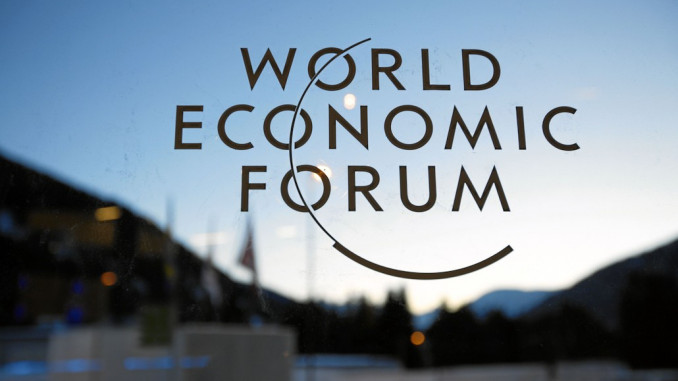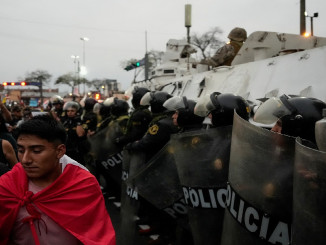
Most of the data and other information in this article are from a piece called “Davos and the Melting World Economy” in Michael Roberts’s blog. Link to it here.
The global One Percent and the world’s major political power brokers meet annually in the luxury ski resort of Davos, Switzerland for something called The World Economic Forum (WEF). This year attendees included James Dimon, the CEO of JPMorgan-Chase Bank, China’s premier Li Qiang, Kristalina Georgieva, managing director of the International Monetary Fund, and Microsoft’s CEO, Satya Nadella. When the tycoons and the politicians are not wheeling and dealing with each other, they discuss what they see as the “challenges facing humanity,” especially the One Percent of humanity. The WEF surveys the Davos participants and summarizes what they think the next few years will be like.
“A recession in the year ahead seems less likely than it appeared at the start of 2023, since interest rates are trending lower, gas prices are down from last year, and incomes are growing faster than inflation,” said Bill Adams, chief economist at Comerica Bank. But he admitted that economists on average “expect the US economy to grow just 1% in 2024, about half its normal long-run rate, and a significant slowing from an estimated 2.6% in 2023.” So, no recession at best, but virtual stagnation in 2024.
“This is less a recession and more of a growth stop,” said Rajeev Dhawan, an economist at Georgia State University. There may be no recession in the U.S., but “the global economy is on track for its worst half-decade of growth in 30 years”.
“Without a major course correction, the 2020s will go down as a decade of wasted opportunity,” said Indermit Gill, the World Bank’s chief economist and senior vice president.
The Global Risk Report does not mention the extent of social inequality in the world in 2024. But every year at Davos, Oxfam presents its ‘alternative’ report on the state of world inequality. In its report this year, entitled Survival of the Richest, Oxfam notes that extreme wealth and extreme poverty have increased simultaneously for the first time in 25 years. “While ordinary people are making daily sacrifices on essentials like food, the super-rich have outdone even their wildest dreams. Just two years in, this decade is shaping up to be the best yet for billionaires — a roaring ‘20s boom for the world’s richest,” said Gabriela Bucher, Executive Director of Oxfam International.
Oxfam quotes the World Bank as saying, “we are likely seeing the biggest increase in global inequality and poverty since WW2.” At the same time, three-quarters of the world’s governments are planning austerity-driven public sector spending cuts —including on health care and education— by $7.8 trillion over the next five years.
What did the WEF Risks Report conclude from its survey of Davos participants? “As we enter 2024, we highlight a predominantly negative outlook for the world over the next two years that is expected to worsen over the next decade… The outlook is markedly more negative over the 10-year time horizon, with nearly two-thirds of respondents expecting a stormy or turbulent outlook.”
“A predominantly negative outlook?” Put simply, it means the capitalists expect to have great difficulty keeping profits high in the next decade. In this situation, they will try to solve their problems by taking it out on us, imposing lower wages, longer hours and cuts to social services. We have to organize to push back; it’s their system, it’s made them enormous profits, and we shouldn’t have pay for their crisis.




